Tagebuch
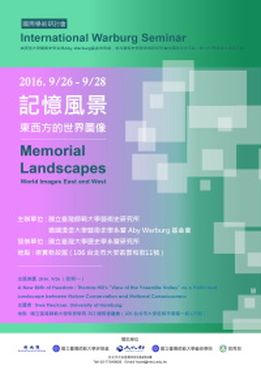
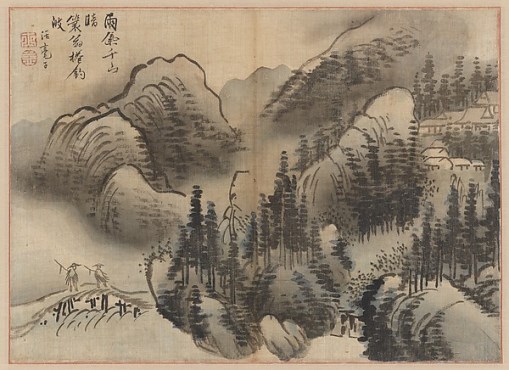
Kim Sugyu: Rainy Landscape, Joseon dynasty (1392–1910)
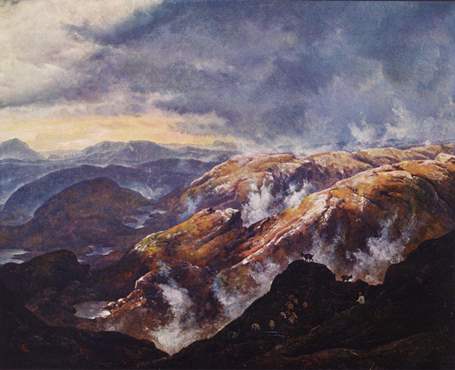
Johan Christian Dahl: Lyshornet near Bergen, 1836
Memorial landscapes. World images East and West
International Warburg Seminar starts next week in Taipei
Hamburg University / Aby Warburg Foundation, Hamburg, in cooperation with National Taiwan Normal University and National Taiwan University, Taipei
The 2016-2017 International Warburg Seminar, to be held in Taipei on 26-30 September 2016 and in Hamburg on 3-7 April 2017 and aimed at doctoral candidates and young academics, will be devoted to comparative views of the landscape genre. People’s perception of their surrounding landscape is subject to a variety of cultural encodings. This becomes particularly clear when international comparisons are made – between, say, Eastern and Western conceptions of landscape. Whereas in the Western world ‘landscape’ and ‘landscape painting’ are practically synonymous (‘Claude Lorrain’s landscapes’), the Chinese language, for instance, uses very different terms for the two concepts: ‘landscape’ in the sense of a vista, (jǐngsè), is thus conceptually quite separate from the traditional notion of landscape painting, (shānshuǐ), which is composed of the characters for ‘mountain’ and ‘water’. At the same time, notions of landscape are subject to constant historical change, and the landscape painting genre has performed a whole series of different tasks which may also vary from period to period. Landscapes are not only veduta-like depictions of nature, but they also provide subjective perspectives on the artist’s realm of experience; they may be outlines for ideal or world landscapes that are more or less distinct from their natural models; and they may be much else besides.
The International Warburg Seminar on Memorial landscapes: world images East and West will focus not so much on aspects of landscape that only depict natural settings as on those that address the construction of cultural links in the broadest sense, creating landscapes with a motivic, thematic, social or political charge – to paraphrase Pierre Nora, paysages de mémoire. Such landscape images encapsulate historical events and national identities, basic philosophical attitudes and political conflicts or cultural, social or environmental issues. The landscape can then become not only a form of reflection on links beyond landscape itself, but also a meta-genre that expresses how nature and landscape are perceived by a particular artist, cultural region or period.
We are looking forward to get an insight of some of the discussions and some impressions from the Warburg Seminar here in the journal thanks to Isabella Augart, who participates in the Seminar!
Warburg-Kolleg
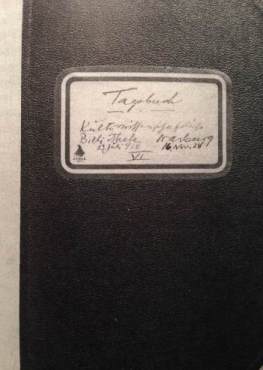
„Fühlungnahme durch tägliche Tagebuchnotizen“
Vor 90 Jahren: die Kulturwissenschaftliche Bibliothek Warburg beginnt ihr Tagebuch
Heute vor 90 Jahren, am 24. August 1926, führte Aby Warburg das „Tagebuch der Kulturwissenschaftlichen Bibliothek Warburg“ ein. Nach dem Einzug der K.B.W. in den Neubau sollten regelmäßige Eintragungen Warburgs und der Kollegen Gertrud Bing und Fritz Saxl die Aktivitäten in der…
Kulturwissenschaftliche Bibliothek Warburg / OnThisDay
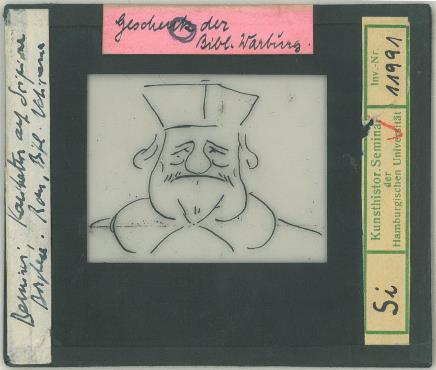
Die Diasammlung. Labor und Archiv der Kunstgeschichte in Hamburg
Ausstellungstipp
Mit der Digitalisierung verlieren Diapositive für die kunstgeschichtliche Forschung und Lehre an Bedeutung – höchste Zeit, sie als historische Objekte und Zeugnisse der Wissenschaftsgeschichte in den Blick zu rücken: Studierende am Kunstgeschichtlichen Seminar der Universität Hamburg sind…
Kulturwissenschaftliche Bibliothek Warburg
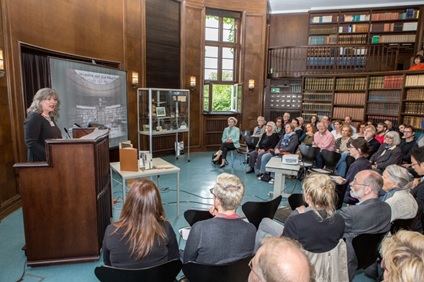
Volles Warburg-Haus mit Aby und Mary, Wissenschaft und Kunst
Rückblick auf den Tag der offenen Tür zum 150. Geburtstag von Aby Warburg
Ein volles Haus zu Ehren Warburgs! So viele interessierte Besucherinnen und Besucher zu unserem Tag der offenen Tür zum 150. Geburtstag des Kunst- und Kulturwissenschaftlers begrüßen zu können, war ein tolles Geburtstagsgeschenk am 13. Juni. Die rege Berichterstattung und das große…
150. Geburtstag Aby Warburgs / Kulturwissenschaftliche Bibliothek Warburg / Mary Warburg / Publikationen / Warburg-Professur
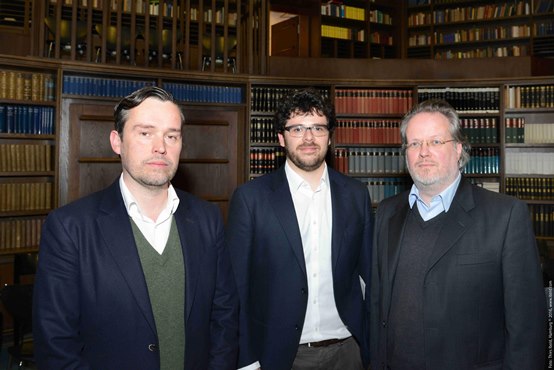
Bau und Bibliothek
Zum 90. Jahrestag der Eröffnung der K.B.W.
Am 1. Mai 1926 wurde die Kulturwissenschaftliche Bibliothek Warburg mit einem Vortrag von Ernst Cassirer feierlich eröffnet. Architektur und Bibliothek, Innen und Außen waren in der Konzeption der K.B.W. auf das Engste verknüpft. Genau diese Beziehung zwischen Bau und Büchern bildete auch den…
Kulturwissenschaftliche Bibliothek Warburg